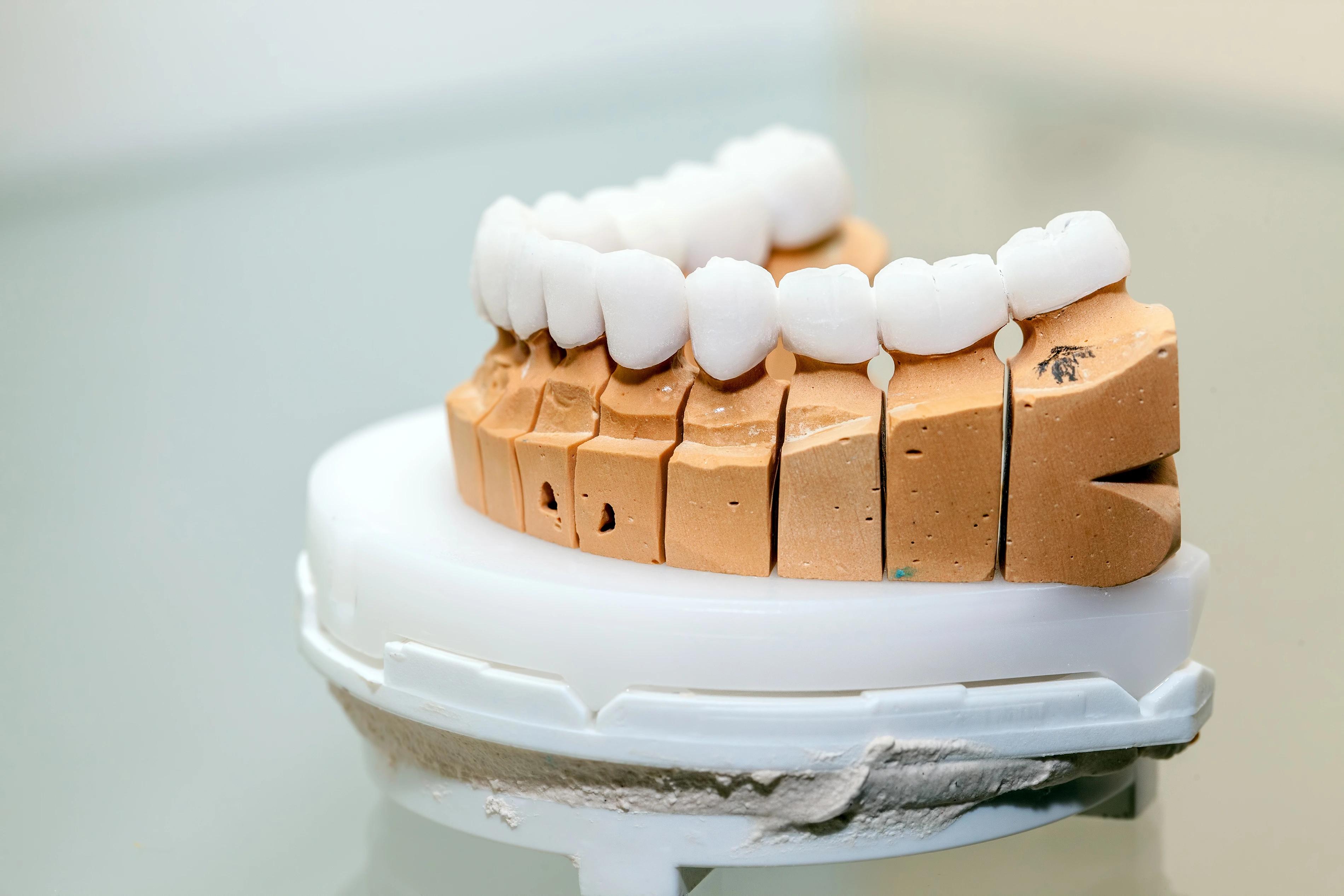Are you confused about the difference between veneers and crowns? Don't worry—you have come to the right place! To give you a short distinction between the two, veneers refer to layers, usually crafted with porcelain, that are then bound to your teeth, whereas crowns resemble a "cap" that is placed over your teeth. There is more to dental veneers and crowns than this, starting with the material used, the procedure itself, and more. Whether you are simply curious and want more information or have decided to undertake one of the two works, this blog will let you know all the details you need.
What Are Dental Veneers?
Veneers, which are usually made of porcelain, are ultra-thin, custom-designed shells made of solid dental porcelain. Around one millimetre thick, veneers cover the front surface of the teeth and are a less invasive cosmetic procedure. However, good application requires a significant amount of existing enamel, while half a millimetre of it (maximum) is removed to ensure that the veneers are correctly "glued" to your teeth. Dental veneers are a standard treatment for cosmetic concerns such as discoloration, chipping, or misalignment of teeth.

What Are Dental Crowns?
On the other hand, dental crowns are "caps" that surround the entire tooth (a large portion of which is removed for the cap to fit), providing a more complete solution. Because the procedure is more invasive than dental veneers, it is usually recommended when your teeth have been severely damaged due to diseases or fractures. Crowns can be made from materials such as porcelain, porcelain-fused metal, or metal alloys. This procedure is an excellent way of improving or restoring the tooth's shape, size, strength, and appearance, providing a durable solution for compromised teeth.
Similarities Between Veneers and Crowns
Both veneers and crowns enhance the appearance and function of the teeth. They are custom-made in such a way that will match the natural colour of your teeth, guaranteeing a perfect fit within your smile. Good oral hygiene routines, like regular tooth brushing, flossing, and dental check-ups at least once a year (or three to six months if you are susceptible to oral diseases), are essential for extending the life of veneers and crowns and ensuring good overall dental health.
Differences Between Veneers and Crowns
Despite fulfilling similar functions, veneers and crowns differ significantly in their application and when they should be applied as a procedure. Veneers cover the tooth's front surface; thus, they are a more "conservative" alternative, as they require less enamel removal. They make a good choice as a cosmetic enhancement, but only when the tooth structure is mostly undamaged. On the other hand, crowns require more enamel removal than veneers, yet they provide more protection for seriously damaged or compromised teeth. This makes crowns a more durable and also a more long-lasting option than veneers.

Cost Considerations
The cost of veneers and crowns varies based on two factors: material utilised and difficulty of the process. Porcelain veneers typically cost $925 to $2,500 per tooth, whereas crowns cost $1,000 to $3,500 per tooth. Dental insurance often covers part of the expenditures needed for crowns, especially when they are required for restorative purposes; however, veneers may not be covered since they are deemed a cosmetic procedure; therefore, not a necessity for one's health.
Choosing the Right Option
Your unique dental needs will determine whether you require crowns or veneers. Veneers may be the best option if your teeth are still in good condition and your main goal is to give them a little extra shine. However, if they have had considerable dental work done on them or have taken substantial damage due to oral issues you may have suffered, a crown may provide even more strength and support for your damaged teeth. You can choose the best course of action for your oral health objectives and the state of your teeth by consulting with your dentist.




